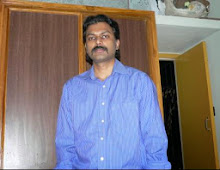you want to blow your mind? ;-) how about 0-60mph in 2.95secs automatic, 3.2 secs stick shift for ~ $80k!
http://www.marketwatch.com/story/this-corvette-is-faster-than-hellcat-ferrari-mclaren-2014-11-07
http://www.dnaindia.com/health/report-why-people-forget-details-but-maintain-emotional-reaction-post-traumatic-events-2032555
This may help to understand why in pathological situations of post-traumatic stress disorders, the uncontrolled emotional response linked to the negative event is generated without knowing what causes it.
As explained by Lluis Fuentemilla, project coordinator, the study helps explain how the processing of fearful memories can lead to post-traumatic stress disorder and also opens the door to the investigation of new therapeutic strategies for these disorders because the implicit memory trace in a fearful context does not loose over time and can be detected through electrodermal measures.
run the sewer through the playground?
“If I had to describe my 16 years of corporate work with one phrase, it would be ‘pretending to add value.’ … The key to career advancement is appearing valuable despite all hard evidence to the contrary. … If you add any actual value to your company today, your career is probably not moving in the right direction. Real work is for people at the bottom who plan to stay there.”
Other office workers have presented similar accounts. In The Living Dead, David Bolchover rues “the dominance of image over reality, of obfuscation over clarity, of politics over performance,” and in City Slackers, Steve McKevitt, a disillusioned “business and communications expert,” gloomily declares: “In a society where presentation is everything, it’s no longer about what you do, it’s about how you look like you’re doing it.”
The simulation, the glossing over, the loss of meaning, the jargon, the games, the office politics, the crises, the boredom, the despair, and the sense of unreality—these are ingredients that often reappear in popular accounts of working life. The risk when they only appear in popular culture is that we begin regarding them as metaphors or exaggerations that may well apply to our own jobs but not to work in general. But what would happen if we started taking these “unserious” accounts of working life more seriously?
ref: http://www.theatlantic.com/business/archive/2014/11/the-art-of-not-working-at-work/382121/
yet to read
http://www.capitalberg.com/researchers-reveals-that-quantum-mechanics-could-base-on-string-field-theory-can-lay/21131/
http://www.technologyreview.com/news/532166/with-100-million-entrepreneur-sees-path-to-disrupt-medical-imaging/
http://news.discovery.com/space/astronomy/why-our-galaxys-black-hole-didnt-eat-that-mystery-object-141104.htm
http://www.marketwatch.com/story/this-corvette-is-faster-than-hellcat-ferrari-mclaren-2014-11-07
http://www.dnaindia.com/health/report-why-people-forget-details-but-maintain-emotional-reaction-post-traumatic-events-2032555
This may help to understand why in pathological situations of post-traumatic stress disorders, the uncontrolled emotional response linked to the negative event is generated without knowing what causes it.
As explained by Lluis Fuentemilla, project coordinator, the study helps explain how the processing of fearful memories can lead to post-traumatic stress disorder and also opens the door to the investigation of new therapeutic strategies for these disorders because the implicit memory trace in a fearful context does not loose over time and can be detected through electrodermal measures.
run the sewer through the playground?
“If I had to describe my 16 years of corporate work with one phrase, it would be ‘pretending to add value.’ … The key to career advancement is appearing valuable despite all hard evidence to the contrary. … If you add any actual value to your company today, your career is probably not moving in the right direction. Real work is for people at the bottom who plan to stay there.”
Other office workers have presented similar accounts. In The Living Dead, David Bolchover rues “the dominance of image over reality, of obfuscation over clarity, of politics over performance,” and in City Slackers, Steve McKevitt, a disillusioned “business and communications expert,” gloomily declares: “In a society where presentation is everything, it’s no longer about what you do, it’s about how you look like you’re doing it.”
The simulation, the glossing over, the loss of meaning, the jargon, the games, the office politics, the crises, the boredom, the despair, and the sense of unreality—these are ingredients that often reappear in popular accounts of working life. The risk when they only appear in popular culture is that we begin regarding them as metaphors or exaggerations that may well apply to our own jobs but not to work in general. But what would happen if we started taking these “unserious” accounts of working life more seriously?
ref: http://www.theatlantic.com/business/archive/2014/11/the-art-of-not-working-at-work/382121/
yet to read
http://www.capitalberg.com/researchers-reveals-that-quantum-mechanics-could-base-on-string-field-theory-can-lay/21131/
http://www.technologyreview.com/news/532166/with-100-million-entrepreneur-sees-path-to-disrupt-medical-imaging/
http://news.discovery.com/space/astronomy/why-our-galaxys-black-hole-didnt-eat-that-mystery-object-141104.htm

No comments:
Post a Comment